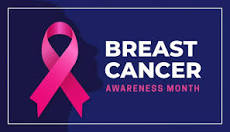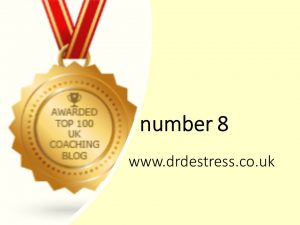
Tough.
Luckily, there are lots of options for treatment and recovery and it is not as doom and gloom as it was decades ago when cancer was more or less a death sentence.
But even though with a more hopeful than ever prospect, it is still a huge challenge to deal with a cancer diagnosis.
I know.
Because I faced it in 2022 when in the autumn I had two independent cancer diagnoses. After they found cancer cells in my womb, I was scheduled to have a hysterectomy early November, followed by a mastectomy and reconstruction early December.
As a life coach/psychotherapist I wondered how I would get through this period. On paper I knew my mindset was crucial, but how would that be in real life? Could I walk my talk in such unknown challenging circumstances?
For me, the time of the diagnoses wasn’t a bad or unhappy time. Luckily, I wasn’t physically unwell, and my mindset helped me to stay in the moment. That moment was fine. It would be fear for the future that could have spoiled that moment, so I decided to take it one day at the time. And I considered this period a time of unsolicited adventures, discoveries and party time as much as possible.
At this moment in time, the treatments have helped and I am clear of cancer. Something I am grateful for every single day. I am still in the process of finding the right medication, but I am alive and kicking!
Cancer requires a lot of decisions. About treatment, how to cope, with whom to spend time, how to communicate or not and lots more.
Looking back, I have made a list of 20 challenges and decisions that helped me through.
If you have been diagnosed and are waiting for the next steps, whatever they may be, hopefully my thoughts support you in a positive mindset and making the right decisions for you.
-
How to tell the family
My DH (darling husband) and I went straight to the pub after the diagnosis of breastcancer and mastectomy. Overwhelmed with the news. Sitting with our drinks, one of the first things we talked about was how to tell our two sons (20 and 23). How much details would we share? When to tell? A few more consultations brought clarity about dates and that was when we to tell after Sunday lunch that ‘We have good bad news. I have two cancer diagnoses, but it seems that the treatment is straightforward. Two operations on these dates and maybe follow-up treatment, but we will only know further down the line.’
-
How to tell others
Does it make sense to let the world know? Like posting on FB or Insta? Or talking to everyone you know? It is a personal decision, but it is important to make it a conscious one. I limited the phone calls to a few close friends and decided to send individual WhatsApps to others. Not a group chat where everyone can read each other’s messages and might feel obliged to comment. Individual messages – copied from the original of course, kept me in control of who knew what. It becomes very annoying to repeat the facts and the news. It would make me feel as if I became my cancer.
-
Normal life
Before my operations and during the recovery, I lived a normal life. After both ops, I needed 4 days to adapt, but then I started seeing clients again. I had given up my extensive marketing activities with weekly blogging, social media posts and networking. I simply wasn’t in the mood. Plus, there wasn’t much time, so I had to be selective.
I walked Mollie, our dog, went out shopping (without lifting anything) and even cooked. But I took my time.
-
It is a long journey
Cancer is a long journey. It takes weeks for tests to come back, which are needed to determine the next step in the treatment. My breast cancer process took exactly 3 months to take me to the point of working on recovery. Nine months after the hysterectomy, I am back in the gym and starting to feel as if I am nearly my good old self. Still feeling the daily effects of medication and hopefully in due course, my body will adapt. I was lucky. I had a course of radiotherapy, but no chemo. For a lot of others it takes longer.
-
Celebrate daily
Any day I was feeling good, I was grateful to be alive and kicking. We had a lot of fun, had little kitchen parties with wine and dancing. It was as if life was more intense and the happiness I felt was stronger than ever before.
-
One day at the time
We all have good days and bad days. I changed my language and said to people: ‘Today is a good day, but I hope tomorrow is a better one.’ In other words, I didn’t allow ‘bad’ days. Every day was a good one. I only focused on that day and didn’t spoil it by thinking about the potential message I could get during next week’s visit to the clinic.
-
See it as a job
I never realized how busy life becomes when you are on the treadmill of the medical circuit. Once you have a first diagnosis, you will be invited to a range of tests and scans, followed by meetings about the results, then treatments and follow-up appointments. Life becomes full-on and your cancer becomes a job. See it like that, know that it will take up a lot of time.
-
Trust
Worry about potential bad scenarios takes away the joy of any day you could have lived your life to the full. Trust the process, the professionals and your body. Trust that what needs to happen will happen. Regardless.
-
Don’t fight it, go with the flow
When people talk about fighting cancer, it never sits well with me. I haven’t fought my cancer. I have gone with its flow. Done what needed to be done. Didn’t complain, but just went with it. I didn’t want to spill my energy fighting, I wanted to use my energy going through the motions in the best possible way.
-
Discover new things
I knew I would have more time as I couldn’t exercise and we didn’t go out that much, so I decided to do stuff I never had time for. I became addicted to jigsaws and love them ever since. I also started crochet and have nearly finished a jumper. Who would have thought that?
-
Nails, make up and hair
Every day I would put on make-up. Yes, even in hospital I had my lipstick, eyebrow pencil and eyeliner with me. I henna my hair myself about every 3 weeks and kept on doing that and as soon as I was out of hospital I was at the nail parlour to get my fake nails back on. Vanity? Maybe. But it makes me feel good if I think I look as well as I can.
-
Training left handedness
My mastectomy was on the right side, and I anticipated it would be hard to use that side, so I started to train myself doing things lefthanded. It’s great fun to brush your teeth with your non-dominant hand. And it’s amazing how quickly I adapted and got really skillful using the left.
-
Exercise and dog walking
Even though my body was traumatized, I went dog walking as soon as possible. Out in nature, fresh air and using my body. Another exercise I did was gently stretching and legs strengthening ones, such as wall sitting (great for quads). It keeps the blood flowing, and it made me feel I did something actively for my recovery.
-
Paracetamol
I am not a fan of painkillers, but I have been swallowing my full allowances of them. And sometimes even more. Pain takes energy, makes me feel unwell, so not having to deal with pain seemed the best option. I didn’t need to impress anyone by taking nothing, so I took everything.
-
Supplements
My focus was on controlling what I could, which was my physical condition. I chose extra supplements to ensure I was a healthy as possible. After all, I had two big operations in a very short time and needed to be as fit as possible.
-
Arnica
Arnica is a natural supplement, which helps to reduce bruising. I started taking it two weeks before the first operation and continued until two weeks after the second. And I guess, it helped prevent and reduce mega swelling, which helped me to recover very quickly.
-
Reflexology
Physical and mental stress can really undermine your state of mind. Both DH and myself signed up for a reflexology session every other week. To keep the energy flowing and the stress at bay.
-
Don’t read about it
Reading about your condition can really worsen the perspective. Articles give you information that might not be relevant to you, and always presents the worst case scenario. You are a layman, why not trust your consultants?
-
Don’t join Facebook groups
I joined a few Facebook groups, anticipating there would be support, sharing of stories and helpful tips. Instead, I found the worst moaning and groaning, worry and negativity. Not helpful if you want to keep your spirits high.
-
Don’t ask why and why me
These questions are unanswerable. Sometimes the why might have a connection with genes, but in a lot of cases there is no suitable answer. And is it relevant? Does it change anything in your situation? The ‘Why me’ is putting yourself in the position of a victim: powerless. In any health scare situation you are sort of a victim, but not necessarily helpless and powerless. A victim mindset is not helpful, so don’t get yourself into that.
These tips above have helped me through a very challenging time. It might be that some of those don’t do it for you, but hopefully there are others that will make a difference.
Wishing you love and light on the journey and if you want to talk things through, you can book a FREE call with me via this link.


Thank you for sharing this Mariette. Such useful information.
What superb advice as always Mariette… the power of positivity and looking forwards even if it is just one step at a time. So glad you are got through this and are still smiling and dancing!
Thank you for sharing your journey with cancer. Such a positive approach. You’re amazing.
The connection between art and emotion is beautifully explored in this article. It’s a masterpiece!